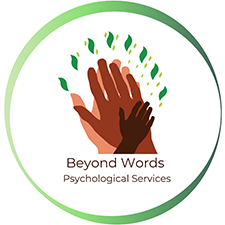Talking About Birth Parents and Identity
Talking with your child about his or her birth parents can be a delicate topic. You may know a lot about your child’s history, or nothing at all. You may feel grateful towards your child’s birth parents, or angry at them for putting your child through a difficult early life. You may experience feelings of insecurity when your child wants to learn more about them, or you may feel comfortable with their search for more information. Regardless of how you feel, the most important part of talking to your child about his or her birth parents is LISTENING.
Of the many and varied ways that our children come to us through adoption, one universal factor is present: in order for your child to become a part of your family, he or she must “lose” another family. Loss and grief are inevitable at some point in your child’s life, and it is imperative that you allow your child to experience these feelings. Children who come to us as infants may grieve the loss of their birth family, while children who join us after years of foster care may have experienced multiple caregiver losses. For most children, this sense of loss will be experienced at various times throughout their lives and will look different at each developmental stage. Your language around this topic is key: remember that you are reinforcing that your child’s birth parents were not able to take care of ANY child at that time, and CHOSE to place him or her up for adoption so he or she could be raised by a loving family (as opposed to “could not take care of YOU” and “GAVE UP for adoption).
Oftentimes, such grief is expressed in anger, because children may not know how to verbalize their feelings around this issue – accept this anger, and understand that it is most likely stemming from hurt, sadness or confusion. Though it may seem contradictory, if your child expresses such anger towards you, it is a good sign. It means your child feels safe enough, and unconditionally loved enough, that he or she does not have to be the “perfect child.” It means your child trusts that you are in his or her life permanently.
For some children, grief may lead to curiosity and a desire to learn more about his or her birth family. Gather as much factual information as you can about your child’s family of origin, and share this information with him or her when appropriate. You may even help your child create a special memories box or collage with items or information you have collected. Birth parents should not be “hidden” – they are an important part of your child’s identity. Remember that even if your child decides to take steps to search for his or her birth family as they get older, he or she is doing so because they are curious about their identity, not because they are searching for “other parents.” Again, do not take it personally – if your own insecurities or fears cause you to hold your child back from learning more about where they came from, you may cause feelings of resentment, frustration and anger, and your child may feel like they are “betraying” you for searching. If you support your child in this search, you are continuing your role as a loving and supportive parent, and remembering that this search is not about you, it’s about your child.
If know you about your child’s cultural history – whether your child is from Ethiopia or a Jewish family in the U.S. – take an active role in bringing this culture into your child’s life. Help your child learn about his or her origins by celebrating holidays, cooking foods, wearing clothing and playing games that are traditional to his or background. Make these things a regular occurrence in your home, along with celebrations, food and games from your own heritage. As a child, my parents brought my brother and I to “PIC” (Parents of Indian Children) regularly – it was a time when they could share and bond with other adoptive parents, and my brother and I could learn how to write our names in Hindi, eat Indian food, and watch traditional dance performances. Show your child that everyone comes from someplace “bigger” than a family, from a rich culture and tradition, and such diversity should be celebrated and embraced. However, make sure to find a balance – the U.S. culture is also a part of your and your child’s identity, and those traditions should not be overlooked. Remember that it is all “our” culture, not “yours” or “mine.” Identity is a complex and ever-changing process that needs to be nurtured over the lifetime, and your willingness to share in your child’s multi-faceted history while continuing to explore your own is a key part of healthy parenting.
Link of the week: A LETTER TO MY BIRTH MOTHER
Next week’s blog: HELPING YOUR CHILD FEEL A SENSE OF BELONGING WITH EXTENDED FAMILY
